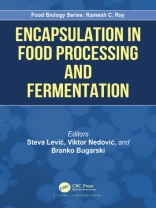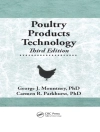Food technology has adopted new principles and practices that are rapidly changing the food sector. New foods are now available under more uniform standards and better quality control. Globalised food market offers opportunities for manufacturers to increase production and profit, and at the same time, consumers benefit from the choice of food products like never before. All this is possible only because of the innovations in the food sector. One of such innovations is encapsulation technology, which aims to preserve food quality, enhance the sensorial properties of food and increase the efficiency in food processing. This book discusses the uses of encapsulation technology in food practices and conventional processes and also highlights new directions in food processing. In the introductory chapters’ review of encapsulation technologies, carrier materials and criteria for their selection, analytical methods for characterisation of encapsulated products and some aspects of product design and process optimisation. The most important achievements of encapsulation technology in the food sector are reviewed in the later chapters related to encapsulation of food ingredients, food biocatalysts and examples of usage of encapsulated active ingredients in the dairy and meat industry, beverage production, etc. In addition, the implementation of nanotechnology in the food sector is reviewed, emphasizing the most important materials and technologies for the production of nanoencapsulates. The book is a valuable source of information on encapsulation technology, for academia and industry, especially the food sector, with the aim of enhancing knowledge transfer.
Branko Bugarski & Steva Levic
Encapsulation in Food Processing and Fermentation [EPUB ebook]
Encapsulation in Food Processing and Fermentation [EPUB ebook]
购买此电子书可免费获赠一本!
语言 英语 ● 格式 EPUB ● 网页 378 ● ISBN 9781000655971 ● 编辑 Branko Bugarski & Steva Levic ● 出版者 CRC Press ● 发布时间 2022 ● 下载 3 时 ● 货币 EUR ● ID 8426046 ● 复制保护 Adobe DRM
需要具备DRM功能的电子书阅读器












